
(Image: caio_triana)
Recently some readers told me that they have been feeling overwhelmed by the flood of information online these days.
I feel the same. This is why I deleted Twitter. It’s also why I have unsubscribed from almost every newsletter, deleted various social media accounts, and simplified my site design.
If you use the internet a lot like I do, you probably feel burnt out sometimes. Digital burnout is fatigue and stress caused by prolonged use of technology. As technology makes it easier to transmit information than ever (which leads to a flood of information); as businesses adopt addictive web design to keep users past the point of optimal use; and as the internet is driven by click-bait content rather than quality (a natural occurrence when something reaches mass adoption), we need to be more conscious about how we use technology and the internet.
Here are 6 tips to deal with digital burnout and navigate our increasingly digitized world.
1) Opt out of information you don’t need
The web has made it incredibly easy for information to travel. Within minutes, we are flooded with information from 10 different websites as we click from one news feed to another. At any point in time, we are flooded with marketing messages from companies eager to market their latest products and services, as the web is now increasingly commercialized.
Be choiceful about what you let into your consciousness. I recommend to
- Do a newsletter audit. Unsubscribe from sites you don’t read. This includes email lists and RSS feeds.
- Do a social media audit. Unfollow pages you don’t visit anymore on Facebook, YouTube, and other social media accounts. This way you control the information that appears on your news feed.
- Delete emails you can’t unsubscribe from with an email filter. Weirdly, there are still organizations that don’t let you opt out of their newsletters in this day and age. In such cases I create a filter to delete their emails. Learn about email filters here.
- Connect consciously. Have a selection of go-to, high quality sites that you read regularly to educate yourself and raise your consciousness. For example, reading Personal Excellence regularly for self-improvement. Reading Harvard Business Review to enrich your workplace insights. Reading medical journals to learn the latest in science and health research. This way, instead of getting distracted by low quality drivel online, you focus on learning from high quality sites. Read: Feeling Disconnected
2) Spend less time online
Unlike physical stores, the internet is open 24/7. No matter how long you have been online, there will always be emails to reply to, messages to check, and updates to read. Hence, it’s easy to get sucked into the online world as you refresh your social media news feed for the next update and follow a never-ending trail of content on YouTube, Facebook, and social media news feeds.
Set limits for your digital usage. For example:
- Limit email to twice a day, unless you are free or your work is email-based like customer support. I only check my email twice every day, once in the morning and once towards the end of the day.
- Don’t visit social media sites unless you have completed your to-dos. I find that social media greatly diverges my attention and drains my productivity, after which I need to compensate by working late, which burns me out in the long run.
- Set aside 1-2 hours a day where you do something away from the computer, like watching a movie, reading a book, meditating, or meeting up with friends. I recently watched Ghost in the Shell (the 2017 live action film) — it’s a decent movie despite the negative reviews, though it could have gone a lot deeper given the compelling backstory.
- Disconnect after 8pm each day (or at least stop using the computer for work). Having a cutoff helps promote healthy sleep patterns.
The above are just examples. The point is to set boundaries between the digital world and your life. You want to regain control over your life instead of being sucked into the online world 24/7 each day.
3) Get a life outside of the internet
Because there is so much going on in the online world all the time, sometimes we can feel that being online is our life. That there’s nothing else we need to do because we have the internet. With so many videos to watch, so many stories to click, and so many Instagram pictures to see, what else do we need?
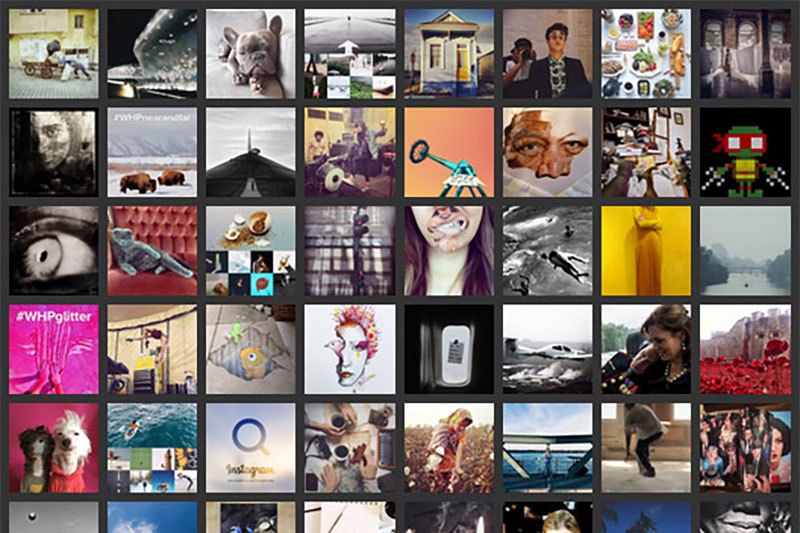
Are you living on your social media news feed? (Image: Instagram Feed)
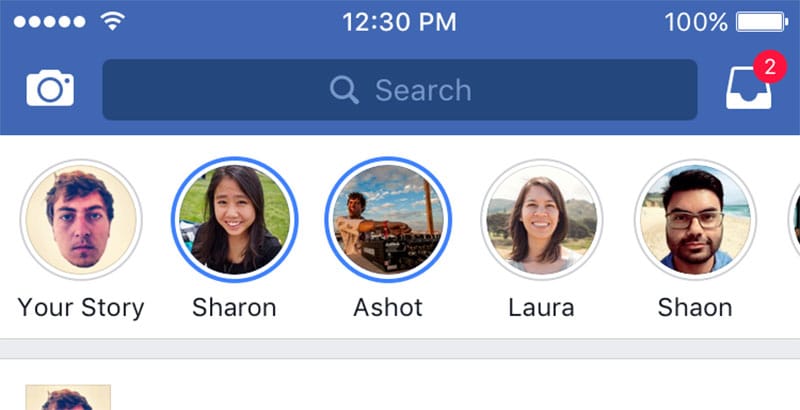
Facebook now has a “Stories” feature where you can follow others’ updates, complete with pictures and videos (Image: TechCrunch)
But don’t confuse “internet” and “life.” The internet is not your life; it’s a tool that enhances your life. Your life is your life; it’s bigger than what you do online. When you spend excessive time online, you will feel deprived and unhappy, even if you are connecting with many people online. That’s because the internet, while it facilitates connection, can never give you things that you can only get in real life, such as physical touch, face-to-face interaction, the ability to see and feel things in person, and contact with nature. The internet also makes it difficult to have authentic conversations sometimes, especially if the other person is not good with text communication.
Not to mention, the act of staring at a digital monitor continuously while sitting in a fixed posture for over 8 hours is actually very draining. The human body, while adaptable, is not meant to be holed up in a cubicle and held in a fixed position for such a long period of time. Our eyes need to rest and we need to stretch and move our bodies.
Consider this: If you can’t use the computer today, what would you do instead? Spend a few hours each week doing these instead. The goal isn’t to deny the fact that we live in a digitally-wired world, but to explore our interests outside of the web and to get in touch with the physical world. For example:
- Is there anywhere you want to go? The beach perhaps? A neighboring town? Go there this weekend.
- Any friend you’ve been meaning to meet? Text him/her and plan for a meetup.
- Any task you’ve been putting off? Work on this instead.
- How can you meet new people? Even though you can meet lots of people online, it’s different from meeting people in person and having real life friends to turn to. Use the internet to facilitate friendships, not to replace real life contact. Read my guide: 10 Tips To Make New Friends. More ideas here: Cooped Up Indoors? Get a Life with These 7 Tips
4) Opt out of social tools that don’t add value
How many social media networks are you a part of today? Facebook? Twitter? Instagram? Linkedin? Snapchat? Whatsapp? Line? WeChat? There are so many social networks today that it’s overwhelming to keep up. But just because everyone is using a tool doesn’t mean that you have to use it. Decide what’s best for you and opt out of those that don’t matter.
For the past few years I went through a social media audit. I deleted my Flickr, stopped using Pinterest, and stopped actively using Facebook/Twitter, instead focusing on using my blog to connect with you guys. I just felt that most of the social media channels were adding a lot of clutter and didn’t serve much purpose for me, be it for work or life. As of now I’m not using Instagram as I don’t see a need to. I don’t use Snapchat or WeChat either. So nowadays I focus on using the blog to connect with all of you, while using Linkedin for corporate communications, and Facebook to connect with my inner circle friends.
I’m not telling you to stop using social media because they are part of our digitized world today. But it’s good to think about the value that each tool adds to your life rather than blindly using it. What social media tools do you use? For each tool, does it serve or drain you? If it’s draining you, is it time to cut down on your usage or remove it altogether? Organize these social tools around your needs and life, not change yourself just to fit these tools.
5) Remove false urgencies
The digital world is filled with false urgencies. Every mobile app today has push notifications that pop up on our screen. Social media forces us to see updates we can’t opt out of. Messaging apps like Whatsapp and Facebook Messenger are invasive in their implementation, beeping with every message and making it difficult to turn off alerts.
False urgencies are problematic as they force us to drop whatever we’re doing, when most of these alerts are never important — kind of like a Quadrant 3, unimportant task pretending to be a Quadrant 1, important task. You then go down the rabbit hole where you click the alert, read it, and give a quick reply (which creates a loop when the person replies).
Before you know it, your life is now a sum of reactions to your social media alerts, while your time is at the mercy of the next person who texts you.
Software and tools should serve you, not disable you. Change your relationship with digital media such that you are in control of your time and attention. For example:
- Turn off recurring software updates. Update an app/software only when you want to. This includes Google Play Store’s automatic updates.
- Turn off push notifications for all apps except important ones.
- Turn off notifications for Whatsapp and SMS, and only check for new messages when you want to.
- Turn off alerts for email. You should only see new mail when you check your mail, not when it enters your inbox.
6) Declutter
Last but not least, declutter.
As we spend more time on our digital devices, we should organize our information in a way that’s easy to use. A huge benefit of digital tech is that we can easily replicate and store information with almost no consequence in terms of storage space. It’s also a con as we, after years of using our devices and accumulating lots of data, now have way too much information than we can manage.
Take some time to tidy up the data in your digital devices:
- Bookmarks: Remove bookmarks you don’t use anymore. Group useful bookmarks into topics, organized by folders. Use second- and third-level folders if you have to.
- Desktop icons: Keep shortcuts only to the things you often access. Avoid a desktop flooded with icons. It’s easier to find what you want with a clean desktop.
- Apps: Uninstall apps you don’t use anymore. You can always install them if you need them next time.
- Documents: Look through your files and sort them into folders. Delete stuff you don’t use anymore or drop them into an archive. Shift unimportant information onto your external drives and keep the bare essentials on your PC. Even though this decluttering will take a while, you’ll find it easier to look for your files once you are done.
- Email: Delete and organize. Create labels/folders to sort your mail. Create email filters to file the same kinds of mail you often receive. Read: How To Manage Your Emails Effectively
The key is to keep it simple. Simple for you to find, store, and use information.
Endnote
Even though digital technology has its issues (blurred boundaries between work and personal life; reduced personal privacy), it has greatly improved our lives as it’s now far easier to connect with others and find information.
The answer isn’t to turn our back on digital tech but to use it in a conscious way, in a way that improves our lives rather than drains it. For example, I deleted my Facebook page last year and it gave me a lot of clarity and space to work on my Quadrant 2 goals. (It was after deleting my page that I produced the new version of Live a Better Life in 30 Days, designed the new PE layout, and made some important business shifts.) Yet I really miss the personal contact with you guys, so I’m giving Facebook another go now, while changing how I use the platform to see if I can get a better result. I may well delete it again if it doesn’t work out, but at least I’m giving it a shot.
Whether we like it or not, digital technology is here to stay. Facebook will be around for a while, and even if it disappears one day, something else will take its place. The flood of information online won’t change anytime soon and will likely worsen as more people use the net. So let’s figure out our boundaries and learn to use technology in a conscious way, in a way that aids us. This way we can get the best out of digital tech and use it in the way it was intended — to enhance our lives and help us grow as humans. :)
Read: How Social Media Creates a Fear of Missing Out (And What To Do About It)

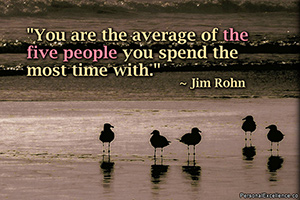
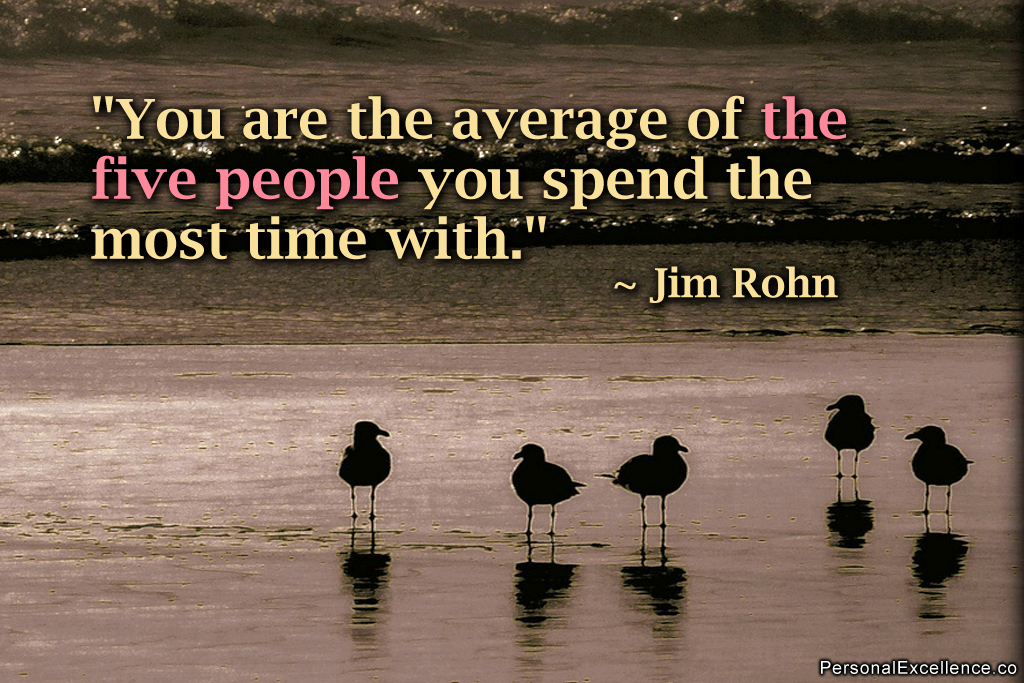

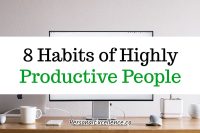




 Thanks for reading. If you like my free articles, join my private email list and get my latest updates and articles sent right to your inbox.
Thanks for reading. If you like my free articles, join my private email list and get my latest updates and articles sent right to your inbox.